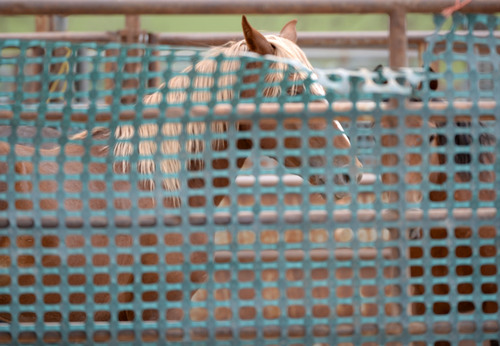This is an archived article that was published on sltrib.com in 2014, and information in the article may be outdated. It is provided only for personal research purposes and may not be reprinted.
The four-day roundup of wild horses in Beaver County's Wah Wah mountains ended Thursday with 143 horses removed.
Bureau of Land Management spokeswoman Lisa Reid said roundup crews were moving farther west Friday to the Sulphur herd management area, where they intended to remove another 30 horses.
Horses from the Sulphur herd have been hanging out along State Route 21 near Nevada, and two have been hit by vehicles this year, she said.
BLM officials in Washington previously gave permission for only 10 to be removed, but recently bumped the number up to 30, Reid said.
That will make a small dent in the number of horses along the highway; Utah's BLM wild horse and burro manager counted 140 on Sunday, she said.
Two of the 143 horses removed from Blawn Wash in the Wah Wah mountains, a yearling filly and a 7-year-old mare, died.
The agitated yearling was alone in a temporary corral and apparently rammed the side, breaking her neck. The mare was euthanized because a veterinarian determined she was in pain from swelling, a deformed leg and protruding hip from a previous leg fracture, Reid said.
Ranchers whose livestock compete for forage and county commissioners in southern Utah have been pressing the BLM to bring wild horse numbers under control, since it has twice as many as the agency's own limits prescribe. Utah has close to 4,000 when there are suppose to be fewer than 2,000.
The BLM was reluctant to do any roundups of wild horses in the West this year because there's not enough demand for horse adoptions and there are already nearly 50,000 in holding pastures in the Midwest.
Ultimately, the federal agency approved removal of 220 horses in the state, but only those on private land or causing safety hazards, such as along State Route 21.
The Blawn Wash roundup was meant to remove horses from State and Institutional Trust Lands, and another 50 are being removed from private land in Iron County via passive traps — water troughs.
Twitter: @KristenMoulton



